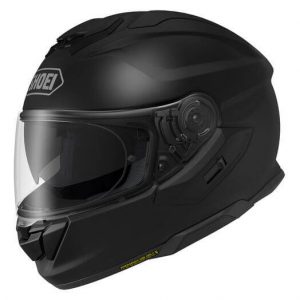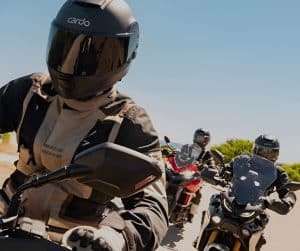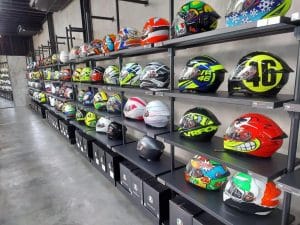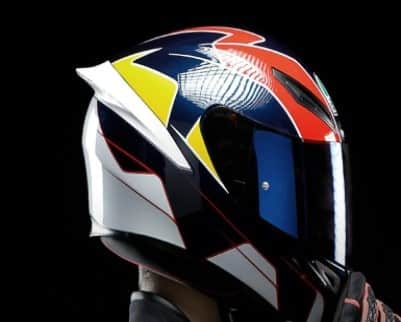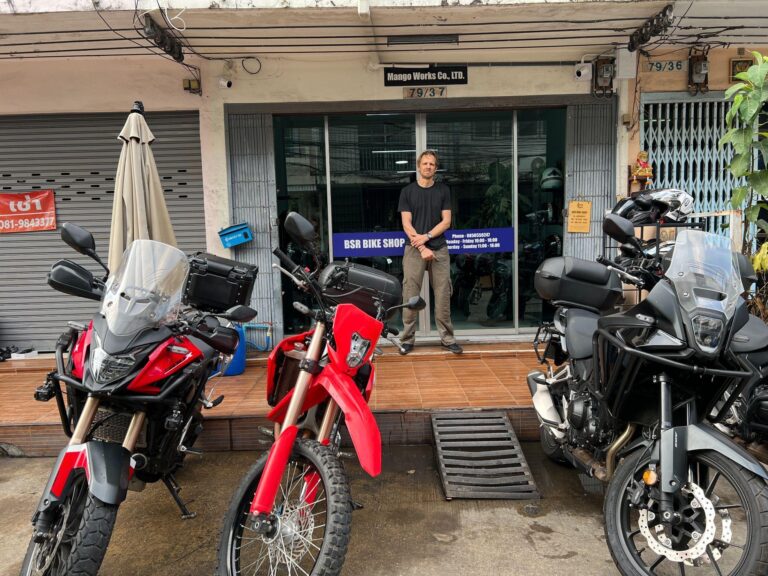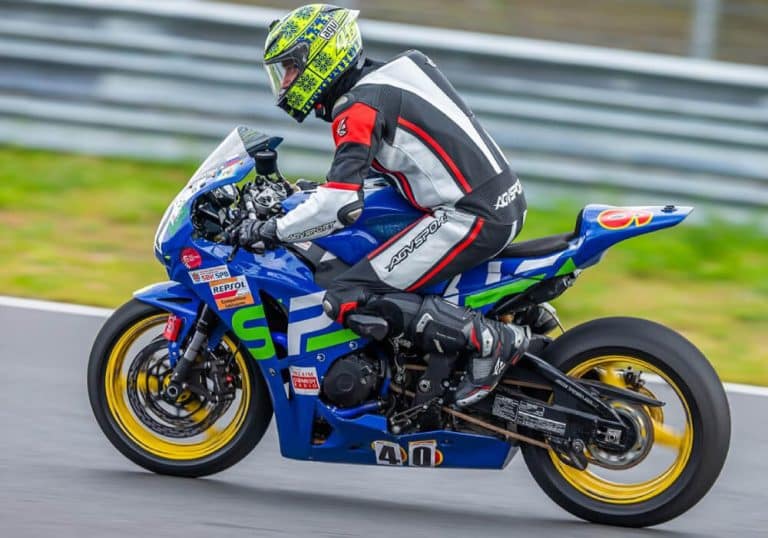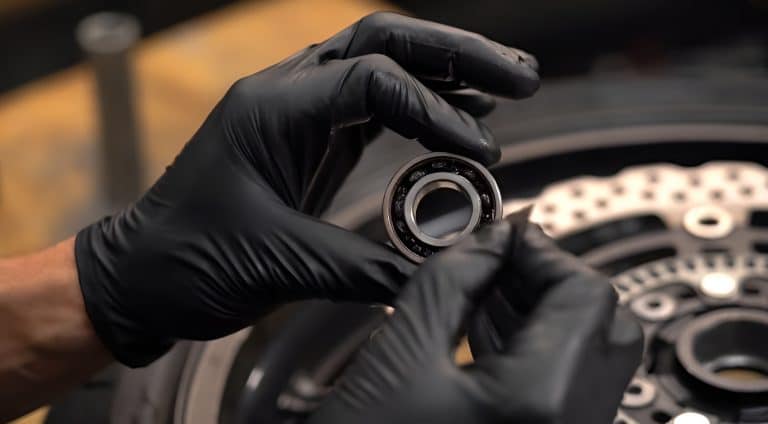For beginner motorcycle riders, while many suggest an engine size of 500cc to 600cc, I recommend starting with a 250cc, 300cc, or 400cc bike. The range offers enough power for new riders while being easier to handle. As you gain experience and confidence, you can consider upgrading to a larger engine size if desired.
A lower cc motorcycle will be easier to handle and faster to stop. It will be more forgiving to the inevitable mistakes that new riders make. Just because a bike has a smaller engine doesn’t mean you still can’t ride fast, and choosing a bike that is both heavy and powerful can be risky for your safety and that of others.
Besides, if you prioritize aesthetics often associated with larger bikes, you can always customize and enhance the appearance of an entry-level bike to align with your preferences.
Product Name Category Dimension Check & Shop Now
RAM Mounts X-Grip Handlebar U-Bolt Base Best Phone Mount 0.50" to 1.25" Clamps, Max Width 4.5”, Max Depth 0.875’’ RevZilla | J&P Cycles | Amazon
HogWorkz LED 7" Halomaker Headlight Best Custom LED Headlight 7” Diameter, 3600 - 5400 Lumen Low to High Beam RevZilla | J&P Cycles | Amazon
Kuryakyn ISO Grips Best Custom Handle Grips One Pair Dual Cable RevZilla | MotoSport | Amazon
Motogadget m-Blaze Disc Bar End LED Turn Signal Best Bar End Blinkers Fits 7/8" and 1" Bars (14mm to 21mm ID) RevZilla | CycleGear | Amazon
CRG Hindsight Lanesplitter Bar End Mirror Best Bar End Mirror 3" ID Mirror Fits 7/8' OD Handlebars/Clip-Ons RevZilla | MotoSport | Amazon
Leo Vince GP Corsa Slip-On Exhaust Best Slip-On Exhaust 5.4 Pounds RevZilla | MotoSport | Amazon
Dupli-Color Perfect Match Best Spray Can Paint 8 Ounces Amazon
Choosing the Right Engine CC Size for a Beginner Motorcycle
 Keith Code, founder of the California Superbike School, in his AGVSPORT road racer.
Keith Code, founder of the California Superbike School, in his AGVSPORT road racer.
You’re fascinated by motorcycles and are looking forward to buying your first one. But you’re not sure which one would be the best for a beginner motorcycle. What engine CC size is best for a new rider?
The best CC for a beginner motorcycle depends on several factors. The most important of which is the size and weight of the rider. For a small to medium-sized motorcyclist, a 125 cc, 250CC, or 300 cc is an excellent choice. For larger riders, a 400cc, 500cc, or even a 600cc would be ideal if no more than a twin cylinder. A 600CC four-cylinder sport bike would not be a viable choice for a beginning rider.
Keep reading for more information on why beginners shouldn’t start with a large displacement (CC) engine. We will explain exactly what CC means in a motorcycle and some tips for buying a bike.
Why Is Higher CC Not Always Better for Beginners?

As tempting as it is to get a big bike to start with, there are many reasons why it is not a good idea. Beginners shouldn’t buy a motorcycle that is too powerful, heavy, and fast, and we will explain in detail each one of the reasons.
Learning to Ride
As a beginning rider, you should start with a bike you can handle, and control confidently is essential. A higher CC bike can be harder to handle and slower to stop.
Getting a big bike may create bad habits you will have to unlearn later. It is easier to learn the fundamentals of riding a small motorcycle. If you drop your bike while practicing, a smaller motorcycle is less likely to have expensive damage, and repairing a smaller motorcycle will be less expensive and more manageable.
Cost
Many people start out thinking they are going to love riding motorcycles. However, this is not always the case. If you do not enjoy riding, it will be more difficult to resell a more expensive motorcycle, and they have higher maintenance and parts costs.
Insurance and Maintenance
Higher CC bikes also have higher insurance rates and costs for maintenance. Depending on the model a larger motorcycle could have insurance costs many times that of a small to mid-range bike. As a beginner rider, it is crucial to consider the financial aspect of owning a motorcycle. Stick with a lower CC bike until you have more experience and can handle the added expenses of higher CC bikes.
Safety
More powerful bikes require more experience and skill to handle safely. A beginner rider may get into situations quickly and be overwhelmed and lose control on a higher CC bike, leading to potentially serious accidents.
What CC Bike Should I Start With? What Models Should You Consider?

Some recommended beginner bikes include models such as the Honda Rebel 300/500, Suzuki DR-Z400, Kawasaki Ninja 250, 300, and 400, Yamaha R3, Yamaha MMT03, and the Honda CBR300. These bikes have enough power for a beginner to enjoy but not too much to become overwhelming or dangerous.
What Does CC Refer To?
Let’s clarify what “CC” means in motorcycle terms. CC, or cubic centimeters, is a measurement of the engine size in a motorcycle. Generally, the larger the CCs, the more power the engine has but there are many factors and variables that affect this.
CC stands for Cubic Centimeters and is a measurement of its Engine Displacement is the volume covered by the travel of all the pistons inside the cylinders of a reciprocating internal combustion engine.
But that doesn’t necessarily mean a higher CC bike is better, or even faster. In fact, for beginner riders, it’s typically recommended to start with a smaller CC motorcycle.
How Many CC is Considered a Motorcycle?
There are different opinions on what bike size counts as a “motorcycle.” Generally speaking, the government considers bikes with engine sizes over 150 CCs motorcycles, while anything under that is a motorbike, moped, or scooter.
What To Know Before Buying a Bike?
Before buying a motorcycle, there are several considerations to keep in mind. First, make sure the bike fits your height and weight comfortably. You should also always test-drive a motorcycle before purchasing it.
Another tip for beginner riders is to choose a bike with a neutral position. A neutral riding position will make handling and controlling the bike easier.
Choose a bike with good weight distribution and a low center of gravity. This combination will help with maneuverability and stability while riding. A motorcycle with a tall seat height and high center of gravity can be difficult even for more experienced motorcyclists so as a beginner you really want to stay away from any motorcycle you can’t comfortably sit on and touch the ground easily with your feet.
When choosing a motorcycle, beginners must consider their physical size and strength. A smaller or lighter rider may feel more comfortable on a smaller bike, while a larger rider may need a giant bike to handle comfortably.
Additionally, consider the purpose of the bike – do you want it for everyday commuting or weekend adventures? Do you only drive on paved roads, or do you go off-road as well?
Overall, carefully consider these different variables before selecting your beginner bike. The most crucial part of riding a motorcycle is having fun. If you get the wrong type of bike, it can make the driving experience miserable and defeat the purpose of riding motorcycles in the first place.
Michael’s Summary and Conclusion
When choosing a beginner motorcycle, it’s essential to consider the power and size of the bike. A fast motorcycle may be tempting, but it could be too much for a new rider to handle. It’s also vital to understand what is needed for your motorcycle license.
Overall, research and choose a motorcycle that fits your abilities and preferences as a beginner rider. Your safety should always come first. Happy riding!
I've diligently categorized my motorcycle gear recommendations into all available categories, with the aim of providing you with a comprehensive analysis that showcases the absolute best options for all your needs. These items are the culmination of in-depth research, extensive testing, and personal use throughout my vast experience of 50+ years in the world of motorcycling. Besides being a passionate rider, I've held leadership positions and offered consultancy services to reputable companies in over 25 countries. To See Top Picks and the Best Prices & Places to Buy: Click Here!

FAQs – I Have the Answers!
Q: What CC Is Good for a Beginner Motorcycle?
For beginner motorcycle riders, an engine size between 250cc and 400cc is recommended, providing a balance of manageable power and ease of handling. While bikes in the 500cc to 600cc range can also be suitable, those with smaller engines are typically easier to control and more forgiving of mistakes. Remember, having a smaller engine doesn’t limit your ability to ride quickly.
Q: Is 250CC a Good Starter Bike?
A 250CC motorcycle is considered to be on the higher end for a beginner bike in some countries while considered quite small in others. You should ignore what other people say and just choose a bike that does not have too much power or weight for a first-time rider to handle properly and safely.
Q: How Many CC for a Motorcycle License?
In most states, you need a motorcycle license to operate any bike above 50CC.
Q: Should I Buy a New or Used One for My First Bike?
Buying new or used ultimately comes down to personal preference and budget. However, buying a used beginner bike may be wise if you decide that motorcycling is not for you. This way, you won’t lose as much money on a new bike. Also, if you buy a motorcycle that is either too big or too small, you have a smaller investment and can sell it and buy a more appropriate size for your needs.
Q: How Do You Get a Motorcycle License?
You must pass a written and hands-on riding test to get a motorcycle license. You can typically take courses or classes to prepare for these tests. It’s essential to have proper training before operating a motorcycle.
Information for this article was partially sourced and researched from the following authoritative Government, educational, corporate, and nonprofit organizations:
- Motorcycle Safety Foundation
- National Highway Traffic Safety Administration
- American Association of Motor Vehicle Administrators
- National Highway Traffic Safety Administration
M/WO





